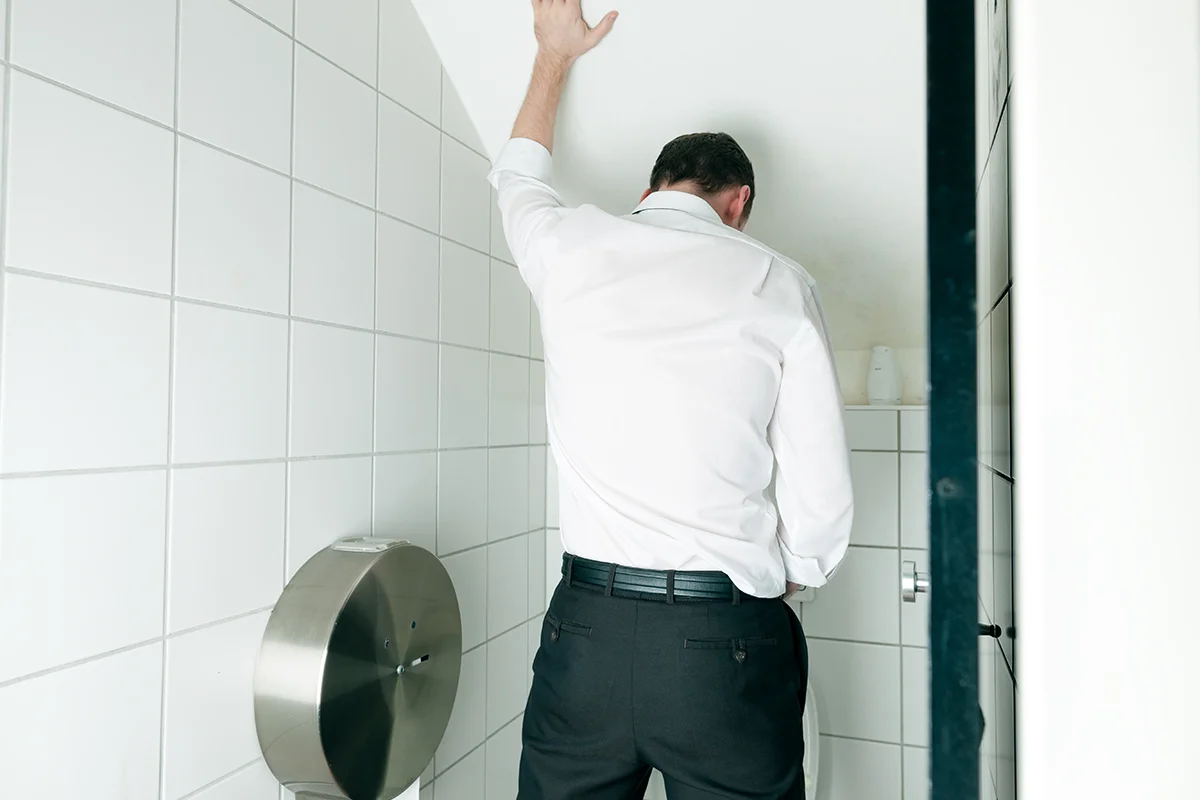Lisinopril is an ACE inhibitor called an angiotensin-converting enzyme (ACE) inhibitor. It is most effective in lowering blood pressure in all grades of essential hypertension. It is primarily used to treat hypertension, congestive heart failure, and heart attacks and prevents renal and retinal complications of diabetes. Used to improve the survival rate after a heart attack.
Peeing and blood pressure medicine has close connections. Many blood pressure medications can make you pee as it is a mechanism to let out the fluids that induce hypertension. Lisinopril can also make you quite pee but it is not a totally diuretic it is combined with diuretic for the pee. Let's get to know more.
Does Blood Pressure Medication Make You Pee?
ACEIs work by blocking the action of the renin-angiotensin system (RAS). Renin is released from the kidney when you have low blood pressure, low salt intake or diuretic usage generates angiotensin II, that constricts blood vessels, retains salt and water by the kidneys and results in raising blood pressure.
These high blood pressure medications work by blocking the formation of a hormone that narrows blood vessels, so vessels relax and can flow more easily, gradually the heart can pump blood more efficiently and due to diuretic properties it will make you pee more than usual which is usually helpful in letting the salt and fluids out of the system.
Does Lisinopril Have Diuretic Properties?
Lisinopril is not a diuretic, but it is mostly combined with diuretics for the better treatment of hypertension. It is paired with hydrochlorothiazide as a combined therapy and is highly effective in treating high blood pressure. ACE inhibitors relax the blood vessels, while diuretics remove extra salt and water from the kidney.
It blocks a specific enzyme that prevents the hormone angiotensin I from being converted into angiotensin II. By blocking increased levels of angiotensin II in plasma, Lisinopril decreases the contraction of blood vessels and increases plasma renin activity, thus decreasing blood pressure. Diuretics have the property to make you urinate more than usual, and ACE inhibitors also do the same by relaxing vessels.
How Can Lisinopril Make You Urinate?
Lisinopril alone cannot itself make you pee. It is combined with diuretic (water pills) for an effective treatment on blood pressure. With this combination Lisinopril affects kidney function, preventing them from holding too much salt and water.
It will impact blood pressure levels within 1 hour of taking, make you urinate more frequently and flush out extra salt and water from kidneys by increasing blood flow and relaxing vessels, thus decreasing blood pressure. The maximum effect of the drug may take up to 6 hours.
When Should You Take Lisinopril To Avoid Over Urination?
Take these medications earlier in the day, so they will not disturb you at night. To prevent urination caused by Lisinopril at bedtime, we must take it 4 hours before sleeping. Lisinopril is used once a day, so taking it in the morning is better to avoid over-urination at night. Take the urination effect as a helping hand to control blood pressure .
Are There Any Other Options Than Lisinopril?
Sometimes Lisinopril is not the best option to treat a patient with high blood pressure. In such cases, doctors may prescribe other drugs in the same class as Lisinopril, called ACE inhibitors.
ACE inhibitors other than Lisinopril include:
- Benazepril (Lotensin)
- Captopril (Capoten)
- Fosinopril (Monopril)
- Enalapril (Epaned, Vasotec)
- Moexipril (Univasc)
- Quinapril (Accupril)
- Trandolapril (Mavik)
Extra Drugs Option For Control Over Hypertension
- Angiotensin receptor blockers: Candesartan (Atacand), eprosartan (Teveten), irbesartan (Avapro), losartan (Cozaar, telmisartan (Micardis).
- Beta-blockers: Nadolol (Corgard), Propranolol (Inderal), Atenolol (Tenormin), Metoprolol (Toprol), Carvedilol (Coreg) and Labetalol.
- Calcium channel blockers: Dihydropyridine CCBs include Amlodipine (Norvasc), Felodipine (Plendil), Nifedipine (Procardia), and Nicardipine (Cardene).
Nondihydropyridine CCBs include two drugs, diltiazem (Dilacor, Cardizem, and Tiazac), and verapamil (Calan, Isoptin, Verelan - Diuretics: Thiazide diuretics include: hydrochlorothiazide or Chlorthalidone usual starting dose 12.5 to 25 mg daily)
- Loop diuretics include: furosemide (Lasix), bumetanide (Bumex), and torsemide (Demadex), torsemide has a rather longer duration of action. It is preferred for heart failure.
Distal potassium-retaining diuretics include amiloride (Midamor) and Triamterene (Dyrenium), together with the other drugs spironolactone (Aldactone) and eplerenone (Inspra).
Conclusion
Lisinopril is used to treat heart failure. It is not a total diuretic but has some diuretic effects due to combination with other diuretics pills and makes you urinate more than usual because it flushes out the extra water and salt from the body.
Lisinopril is available online through several prominent telehealth websites also you can buy lisinopril over the counter at you nearest pharmacy. Start taking this drug according to the prescription of your doctor and stay healthy and happy.



 09 Nov 2022
09 Nov 2022


